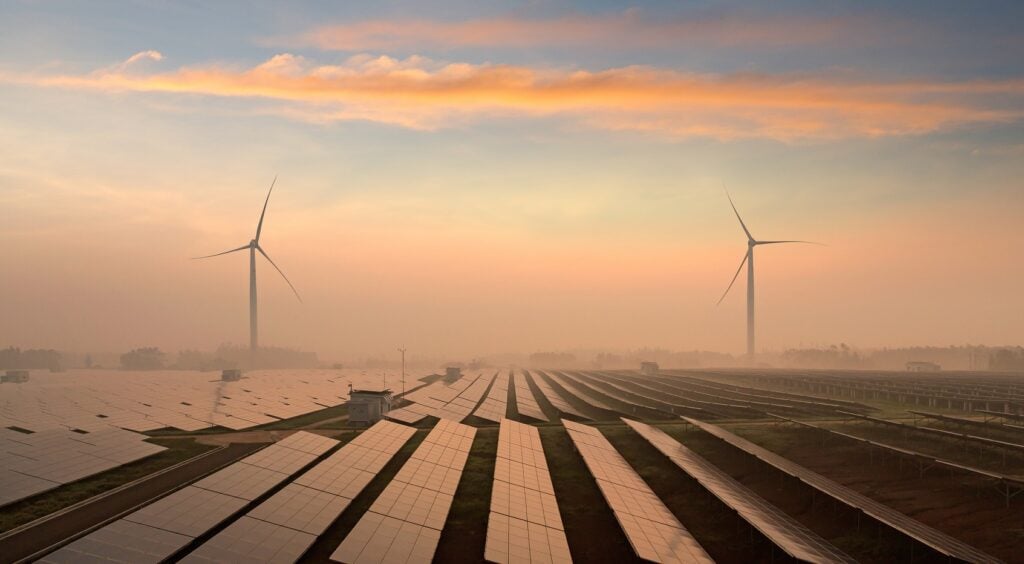Consumers can save an average of £273 by switching to a green supply from a standard variable tariff (SVT) offer by the Big Six energy suppliers as the rise in renewable electricity has meant going green has never been more affordable.
These were the findings of new research by price comparison and switching site uSwitch.com, which discovered that five of the cheapest ten tariffs on the market are eco-friendly and all are at least £267 cheaper than the average big six standard variable tariff.
The company says the average saving – up by £40 from this time last year – is a result of ‘more plentiful’ sources of renewable electricity and bio-gas that now make up an increasing proportion on the UK’s energy mix. This has led to competitive pricing and a greater choice of eco-tariffs as new suppliers promoting clean living and renewable energy enter the market and perform successfully.
The likes of Pure Planet and Bulb – one of the fastest growing independent suppliers having gone from 15,000 customers at the start of last year to more than 670,000 at present – are included in the top five cheapest green tariffs, offering an average bill price of £872 and £923 respectively.
The cheapest green energy tariff available comes in at £853 per year, compared to an average Big Six SVT which uswitch.com puts at £1,213.
Even two of the incumbent suppliers – E.On and npower – now offer green tariffs that are cheaper than their own standard plans.
Shona Eyre, uSwitch.com energy expert, said: “Sustainable living is increasingly important to consumers. With green energy tariffs now featuring heavily in the best-buy tables, planet-friendly deals are no longer an expensive luxury for those who can afford to pay for their principles. Whether it’s using less energy around the home or choosing a green energy deal, these are small changes that make a big difference – both environmentally and financially.
“Huge investment in sustainable gas and electricity has led to almost a third of the UK’s electricity coming from renewable sources. As more suppliers differentiate themselves by focusing on the environment, green tariffs are becoming much more widespread and much cheaper.”
Despite the price savings offered by green tariffs, take-up remains low and according to uSwitch.com, a number of common misconceptions remain about such deals. Most notably 42% believe that green energy tariffs are in fact more expensive than others, more than the 38% who would now consider switching to a green tariff.
With price remaining the most important factor for consumers when considering a new deal (84%), the lack of knowledge within the market stands as a barrier to increased take-up of green supply.
This is further compounded by the new findings showing that 14% of those that said they did not trust green suppliers (30%) wouldn’t go to a green tariff on the basis that they don’t know enough about them, showing that suppliers need to do more to help promote their offerings.
This was touched upon recently by Toby Ferenczi, director of strategy at the UK’s largest independent supplier OVO Energy, when he spoke to Current± last month.
“We do have a role to play in making the public aware of the change in the energy system that’s coming and actually how customers can have a big impact on the environment and on climate change.
“A big part of it is simply getting the word out,” he said.
Meanwhile, Eyre expressed concern that those customers “languishing” on the most expensive tariffs could be deterred from switching suppliers by the incoming energy price cap.
The Domestic Gas and Electricity Bill will see Ofgem cap standard variable and default energy tariffs for around 12 million customers later this year, which consumer groups have suggested could lull households into being less proactive in switching suppliers.
“Customers still languishing on the most expensive Standard Variable Tariffs from the big six could save over £260 by switching to a renewable energy deal. This is why it’s so important that policy changes like the energy price cap don’t undermine this expansion by deterring consumers from switching and suppliers from innovating,” Eyre said.






